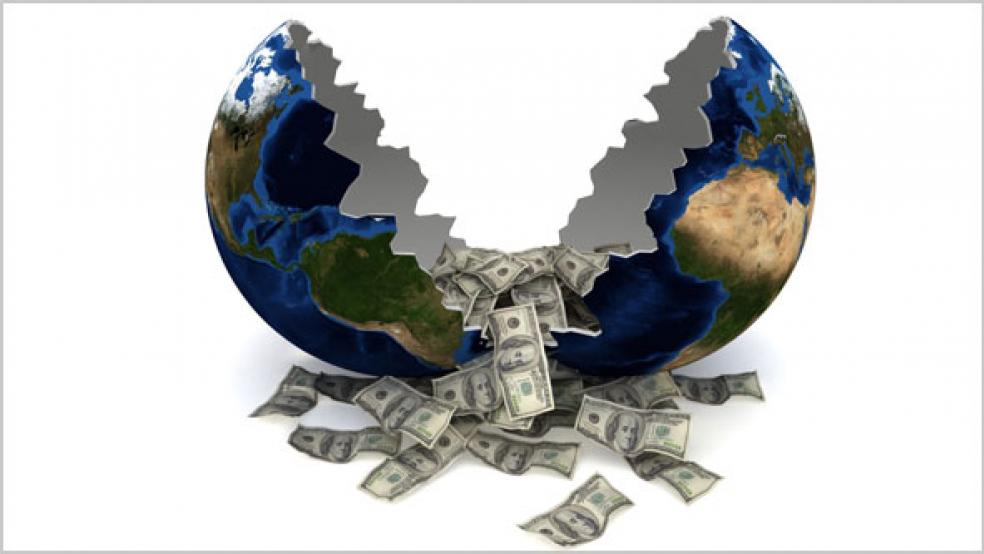In the three decades before the 2008 financial crisis, individual national economies became increasingly global: banks, companies and consumers overseas had a direct impact on the economy here in the United States.
But in recent years, the amount of money flowing across borders has drastically decreased. According to a new report, this represents a drastic shift away from international commerce, with localized markets more dependent on domestic consumption for growth. It could mark the end of modern globalization.
The McKinsey Global Institute report released yesterday measures how much money was removed from the global financial system in the wake of the financial crisis and the worldwide economic slowdown. The results are staggering: in 2007, $11.8 trillion in capital in the form of investments and loans moved internationally. This represented 335 percent of global economic production. But in 2012, only $5 trillion crossed international waters, representing 312 percent of global output. It’s now back to the level it was in 2000.
McKinsey hedges the report by saying that some of the capital removed from the system was part of a necessary global correction. But it also warns that global growth would be extremely difficult without more money in the system.
“For three decades, capital markets and banking systems rapidly expanded and diversified, but now that process - called financial deepening - has largely grounded to a halt,” McKinsey found. “Although global financial assets have surpassed their pre-crisis totals, growth has hit a plateau.”
According to McKinsey, there are two possible ways forward. In the first scenario, countries would becomes isolationist, continuing to retreat from international capital markets and concentrate on domestic growth.
This scenario would likely provide stability while sacrificing potential international growth. U.S. banks would cut down on lending to overseas borrowers; companies with an overseas presence would retract and concentrate on domestic growth; and risks and rewards that come with foreign investment would be eliminated.
In an age of austerity, where planning is made more difficult because of uncertainty, stability is an attractive option. For Americans, this is an attractive option since paralysis in Washington exacerbates uncertainty. We saw this week that political instability in Europe could still wallop world financial markets even though the European financial crisis has taken a backseat to sequestrationhttp://www.bbc.co.uk/news/business-21583576 . Stability would also limit damage from a potential Chinese economic slowdown.
It’s also important to note that the American economy and its workers have benefitted greatly from direct foreign investment in the past. In 2010, foreign countries invested $194 billion in American companies. According to the White House, which is pressing for more foreign trade agreements, in 2011 5.7 million people -- or 13 percent of the U.S. manufacturing workforce -- worked for firms dependent on foreign money. These jobs paid an average of $70,000, some 30 percent higher than the average U.S. salary.
If this kind of investment is going to continue, the United States, along with international partners, will have to follow McKinsey’s second option: financial institutions and policy makers will have to put a regulatory system in place to prevent catastrophes like the 2008 crisis. These regulations would allow money to move across borders more efficiently and with less risk.
The potential for growth in the second scenario is greater. But creating binding global financial regulations, and appointing a global authority to enforce them, would be extremely difficult. Think of this authority like the International Monetary Fund with teeth, a kind of global S.E.C.
The global economy is at a crossroads. One path leads to regulatory integration on a global scale, creating national economies with extremely close ties. The second path leads to a world where national economies are more isolated and rely on domestic consumption for growth. It remains to be seen which way we’re headed.





